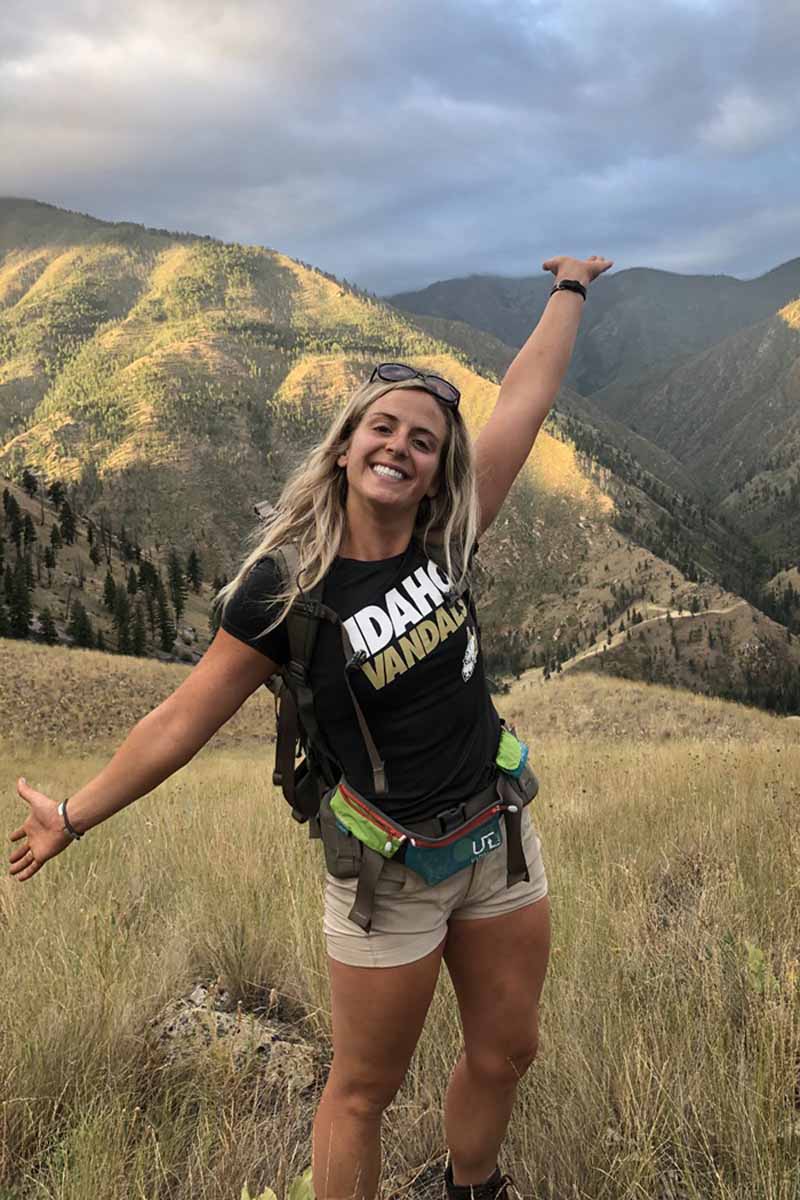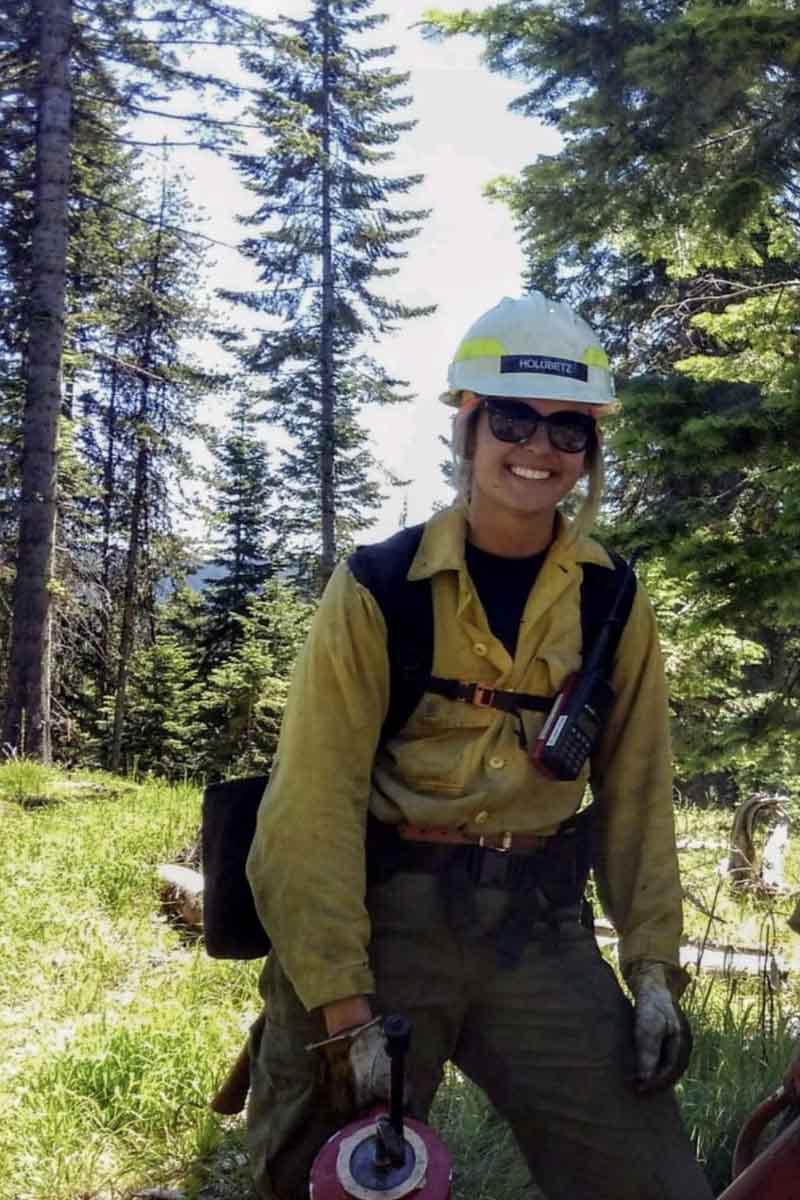Fueling Firefighters
After spending four summers as a wildland firefighter, Heidi Holubetz knows firsthand the physical demands of the job. Now as a graduate student in the Margaret Ritchie School of Family and Consumer Sciences, Holubetz hopes to assist the wildland firefighter community through nutrition education.
Originally from Cottonwood, Holubetz worked summers fighting fires with the Grangeville Helitack Crew while earning her bachelor’s degree in food science from the University of Idaho. Although she had some knowledge of nutrition concepts, she found the nutrition information for firefighters lacking.
“As a first-year firefighter I remember coming into the season unprepared in a lot of ways,” she said. “I also held a lot of misconceptions about fitness and nutrition. Aside from intense physical training, the education most fire staff gets on nutrition and human performance is nonexistent even though it’s a very physically demanding job.
“So, it’s pretty cool for me to give back and help folks start out maybe a little bit more in tune with their bodies and physical performance. Giving them some info that I would have wanted to have.”
While pursuing her food science degree, Holubetz found herself drawn to the nutrition courses offered by FCS. She completed an internship with the U.S. Forest Service focused on firefighter nutrition and, after earning her degree in 2019, spent a year as part of the firefighter health and safety research group in Missoula, Montana.
But she knew her time at U of I wasn’t finished. She decided to explore her interest in nutrition further and returned to Moscow in 2020 to pursue master’s degrees in dietetics and family and consumer sciences.
“I feel my undergraduate degree brought a solid understanding of food and it’s interaction in the environment and that’s been really helpful,” she said. “But I wanted to dive deeper into foods role in the human body and how that can impact health and physical performance. So far it’s kind of closing the loop on a lot of those questions I had as an undergrad and interests I had in nutrition.”
Delivering Nutrition Education
Holubetz is working with Annie Roe, FCS assistant professor and UI Extension specialist, to research how to best communicate with the wildland firefighter community about nutrition and performance. She plans to conduct focus groups to find out what information they want and the best way to get it to them.
“The general consensus is that they are hungry for this information and they would like to know more about nutrition and how it can help them achieve peak performance at their jobs,” she said. “The desire to learn is there, but it hasn’t yet been determined what the best timing and vehicle for delivery for this information might be.”
Meal preparation is another area that Holubetz feels would benefit firefighters. As an undergraduate she taught a nutrition and cooking class to members of the U of I Student Association for Fire Ecology. She revived that class in 2021, teaching students about basic sports nutrition concepts and meal preparation.
“The job itself is very unpredictable,” she said. “It’s not very structured because emerging incidents happen, and you have to adapt and overcome whatever that evolving situation brings. Wildland firefighters have to have a plan to fuel their bodies properly throughout to be able to handle the unexpected.
“The takeaway for the class held on campus was meal preparation. Recipes and easy meal prep advice for them to use when they are in the off season or early season at their home units and able to cook and have more control in how they are fueling themselves.”
The intimate connection Holubetz has with the wildland firefighter community has given her a unique insight into their needs and fuels her desire to help them succeed.
“Learning more about what makes the job and demands unique has helped me tailor the class specifically to that group,” she said. “The needs of that specific population are very unique so having a tailored education program is pretty important because there is no other occupation or athlete out their quite like them.”
Article by Amy Calabretta, College of Agricultural and Life Sciences
Photos provided by Heidi Holubetz
Published in May 2021










